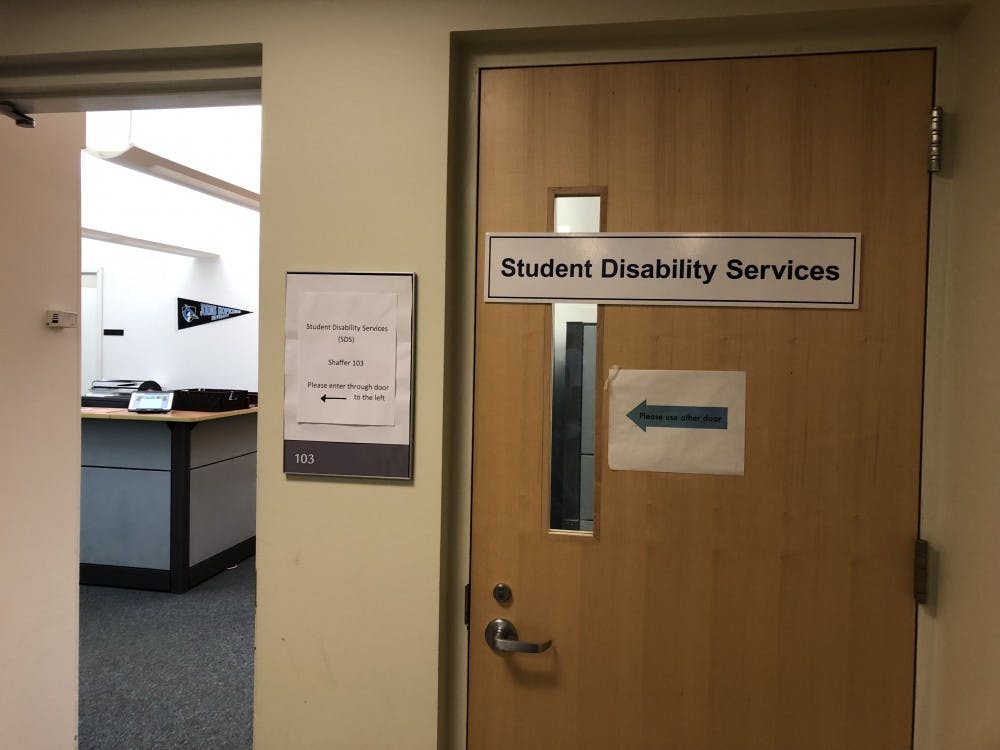Self-advocacy is an important tool that many people who require accommodations use. This is when an individual informs others how best to support them.
However, I believe this should be a last resort. In a perfect world, all environments, including classrooms, would not require accommodations — rather, they would be accessible for everyone from the start. This is the idea of universal design.
Everyone has needs regardless of disability, whether it be requiring the lights in a room to be on, a ramp instead of steps, access to food or breaks during testing. In universal design, no needs are seen as “extra” but are accounted for from the start. This is not always possible, which is where Student Disability Services (SDS) steps in.
SDS should exist to alleviate the strain of requesting accommodations, but this is not always the case. Lack of support from the administration forces gaps into its system.
SDS requires students to do a lot of the bargaining for basic access needs on their own. This is especially true now that it has switched platforms for requesting accommodations from Accessible Information Management (AIM) to Accommodate. Now, students must forward the letter approving their accommodations to their professors; in the past, this was automatically done by SDS. Many have been confused by this switch — one of my friends called it “the new instruction-free software.”
SDS should have devoted its energy to helping professors understand how to provide accommodations for online learning rather than to implementing a new system.
Personally, I have had a much harder time getting the accommodations I need this semester than ever before. This is especially frustrating given that they have never been more important for me. I am hard of hearing, and I need recorded lectures to include captions. I have had this accommodation throughout my previous two years at Hopkins, and it has generally worked well. This semester, though, SDS has had a hard time keeping up with this request. Given that our entire system of learning has been uprooted, this is understandable to a point.
I can tell that my professors feel just as lost about this process as I do. Several have come to me to ask questions about how to add captions, but I don’t know how to help them. SDS is happy to answer the questions, but this is not clear to faculty. Four weeks into the semester, my professors are still unsure how to provide access.
Sometimes, working with SDS can be a frustration on its own. If a student requires an accommodation, they may be required to tell SDS exactly what they need. This is fair, but the process can feel one-sided. If an accommodation cannot be met, it is often up to the student to come up with new solutions.
Furthermore, a leader from SDS has told me they want to ensure they provide accommodations that are absolutely “necessary” and not those that are just “wanted.” I believe that if an accommodation is wanted and would benefit the student, there is a good chance it should be included.
Just because students can survive without an accommodation does not mean they should have to. SDS would not have to restrict their resources to just those that are “most essential” if the administration valued and encouraged their work.
Since universal design is largely unavailable at Hopkins, the next best option is for SDS and the University to advocate on behalf of the student in the face of inaccessibility — this is what they strive to do, even if it’s not always executed.
Once a student has demonstrated to SDS that they qualify for accommodations, SDS should then discuss with the professors how to adjust the classroom to be accessible. This is important, because many disabled people are uncomfortable speaking to professors directly because of the power imbalance inherent in a student-professor relationship. Unfortunately, there is a lot of stigma associated with disability too, and some students fear being judged by professors for their accommodations.
In addition, students may not know what their rights are — in terms of access or disclosure of their disability or health status. If SDS has approved your accommodations, you 100 percent have a right to them, and you are never required to disclose your disability or health status to a professor. So, while the student should be involved in how accommodations are determined and implemented, SDS should be available to fully support the student. Any pushback a professor may have against providing certain accommodations should be directed to SDS.
I truly believe people working in SDS do everything they can to help students. Still, the system is riddled with holes. Disability services are not properly supported and given the attention they need from the institution. Administration needs to make disabled students and accommodations a priority, or else it will be impossible for SDS to keep up.
No one was fully prepared for an online semester, but students with disabilities should never have to bear the burden of negotiating an accessible classroom on their own.
Caroline Cerilli is a junior majoring in Public Health from Ann Arbor, Mich. She is on the board for Advocates for Disability Awareness.





